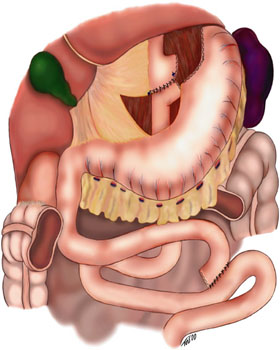- Written by Site Staff
- On Aug 13 2013,
- In Gastric Sleeve Surgery
Gastric Sleeve Post Op Diet
There are many tasty recipes for the gastric sleeve post op diet available for all stages of the food plan. Many people however decide to eat puréed baby foods and after that soft baby food items. Baby food is very healthy and with the addition of a multivitamin each day, you are getting all of the vitamins you need. On top of that, many of the baby foods available on the market these days are really delicious as well!
Final phase is the gastric bypass diet that you will be practicing for the rest of your life after the four stages. Basically, these are just about keeping your meals small, avoiding foods high in fat and sugars, having a healthy meal plan, chewing the food thoroughly, drinking slowly, and taking supplements to ensure that your nutritional needs are well provided.
)
Any injury, such as a surgical operation, causes the body to increase the coagulation of the blood. Simultaneously, activity may be reduced. There is an increased probability of formation of clots in the veins of the legs, or sometimes the pelvis, particularly in the morbidly obese patient. A clot which breaks free and floats to the lungs is called a pulmonary embolus, a very dangerous occurrence. Blood thinners are commonly administered before surgery to reduce the probability of this type of complication.
There are certain patients who cannot tolerate the mal absorption and dumping syndrome associated with Gastric bypass. In such patients, although earlier considered to be a irreversible procedure, there are instances where Gastric bypass procedure can be partially reversed.
If you want to learn more about the gastric sleeve diet, you can find several great books on the subject. Once you are seriously considering a sleeve gastrectomy, the next step is of course to consult a medical doctor that specializes in this field.
This combined approach has tremendously decreased the risk of weight loss surgery for specific groups of patients, even when the risk of the two surgeries is added. Most patients can expect to lose 30 to 50% of their excess body weight over a 6–12 month period with the sleeve gastrectomy alone. The timing of the second procedure will vary according to the degree of weight loss, typically 6 – 18 months.
As the anastomosis heals, it forms scar tissue, which naturally tends to shrink (“contract”) over time, making the opening smaller. This is called a “stricture”. Usually, the passage of food through an anastomosis will keep it stretched open, but if the inflammation and healing process outpaces the stretching process, scarring may make the opening so small that even liquids can no longer pass through it. The solution is a procedure called gastroendoscopy, and stretching of the connection by inflating a balloon inside it. Sometimes this manipulation may have to be performed more than once to achieve lasting correction.
After the operation has
been made, a special gastric sleeve post op diet should be followed. It consists of four stages, with each one having a specific purpose, but all of them being important for your health and well-being. Following a special diet after gastric sleeve will help minimize complications and negative side effects, as well as assist in the weight loss process.
It is difficult to globalize a topic with less than uniform global implications. Gastric Bypass is most commonly performed in the USA. Fundamental methods of doing surgery do not vary by country, nor does basic physiology, but choice of procedure is influenced by many factors.
Your lifestyle should change for the better, after the bypass operation. Be proud of your eating habits and let others know about you gastric sleeve post op diet. It is important to eat your food little by little and chew well. You should not swallow until the food is smooth. Since the tube between the small pouch and the intestines is pretty small, food that is not smooth can obstruct the opening. Your food should be taken in around 30 minutes; if you experience pain beneath your breastbone, it’s a sign that you are eating fast. Liquids should be avoided while eating and also about half an hour after food. After the operation, your body generally will not take in any minerals and vitamins which have to be taken through supplements. Multi-vitamins, vitamin B-12 and 1200 mg of Calcium should be taken daily. Nutrition counts; hence, foods with high fats, sugars and carbohydrates should not be consumed. Say no to alcohol and carbonated as it contains plenty of calories. Patients should also cease smoking one month before the operation. Contact a doctor if you vomit immediately after taking food, if you feel tired, sweat or have diarrhea.
Liposuction – A cosmetic surgery using a hollow tube and a suction device to help remove fat from any parts of your body. However, the death toll as a consequence of post-operative complications rates between 20 and 100 deaths per 100,000 procedures. People who go with lipo usually want a quick fix to help them lose weight and sculpt their body without going through exercising and dieting. Though death rate is pretty low, most people suffer some sorts of complications, and this number has gone unreported.
Posts related to Gastric Sleeve Post Op Diet
by Site Staff
Categories
Recent Posts
-
Gastric Sleeve Post Op Diet
Aug, 13, 2013
-
Gastric Sleeve Surgery – Benefits and ...
Aug, 12, 2013
-
The Gastric Sleeve Diet
Aug, 09, 2013
-
Considering Gastric Sleeve Surgery?
Aug, 08, 2013
-
Gastric Sleeve For Weight Loss – The F...
Aug, 07, 2013
-
Diagnostic Laparoscopy
Aug, 06, 2013
-
Gastric Band Surgery
Aug, 06, 2013















